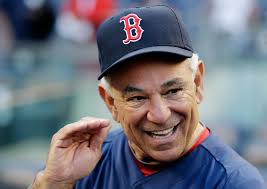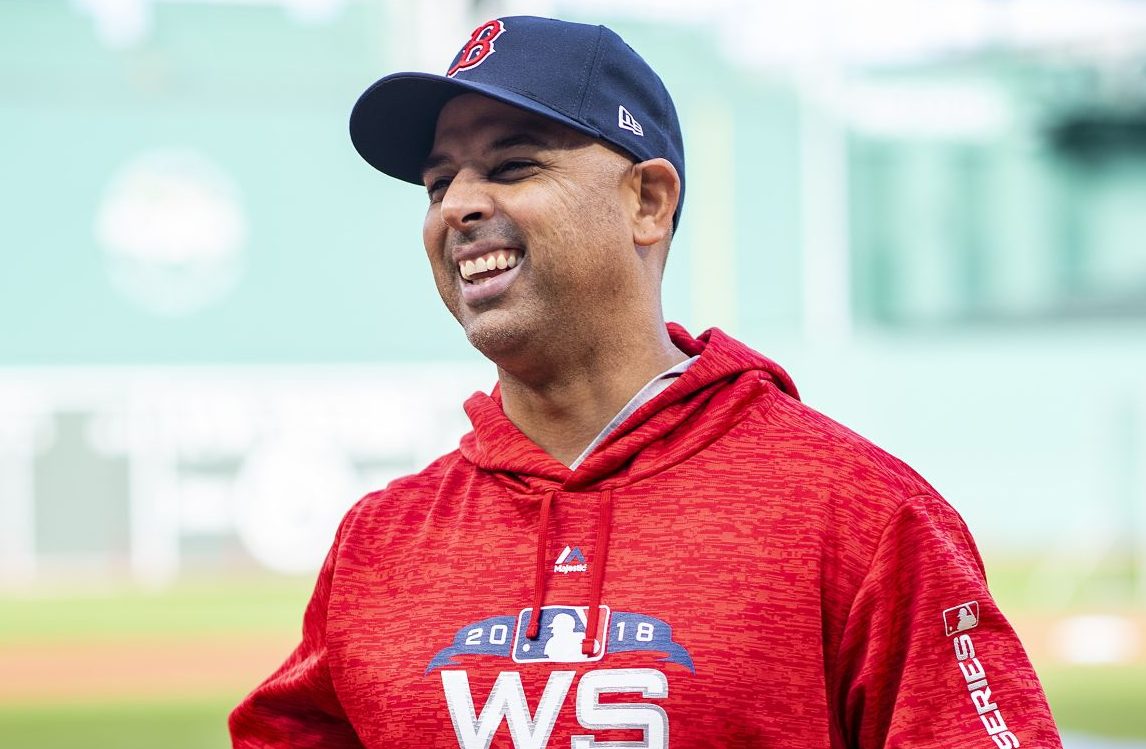Baseball and Management Advice
In the wake of the Red Sox winning the 2018 World Series championships, there is a lot to think about. In addition to wondering about the condition of the World Series trophy after an excited fan accidentally dented it with a beer bottle and wondering what the LA nightclub employees are doing with the $195k tip that the team left after their celebration party, I find myself considering manager Alex Cora’s leadership philosophy in comparison to that of his two predecessors.
The Boston team has been through a lot. After 7 years with Terry “Tito” Francona, the Sox have been managed by three very different individuals: Bobby Valentine, John Farrell, and finally Alex Cora. Whether or not every manager was a positive experience for the team and its fans, each of them can teach us something about management, on and off the diamond.
Bobby Valentine
At the beginning of Valentine’s single season stint with the Sox, The Boston Globe published an article titled “Love him or hate him, Bobby Valentine is in charge,” in its 2012 Baseball Preview. Here, Justin Davis writes:
Valentine thinks he invented baseball; that’s the inevitable comment made when he launches into late-night dissertations about windups or why rosters should be expanded in April and not September. His detractors hate it when he stands on the top step of the dugout, smiling as though he’s in on a joke that nobody else gets.
While, this makes it seem that hating Valentine should be the logical result of working with him, Davis, continues. He says that “what the Red Sox learned during spring training is not that their new manager thinks he invented the game. He just wants to perfect it to the degree that he is able.”
This passion for perfecting the game that lured him back from his job as an ESPN analyst, came through when when Al Leiter shared his take on Valentine:
I went through I don’t know how many spring trainings and we always did all the usual drills, the same old bull, and nobody explained why we did it; they just told us to do it. But when I played for Bobby with the Mets, he explained it and added to it. I found it interesting, I really did. Is he going to get on your nerves? Absolutely he will. If you’re sensitive, you’ll have some issues. But I had some of the best years of my career when I played for him and it was because I was prepared to pitch. He made sure of that.
According to Leiter, the most he ever learned about baseball was from Valentine, yet the driving passion behind Valentine’s methods had their cons as well. Dustin Pedroia was able to take it all in stride, saying “You hear a lot of things about Bobby, but the guy loves the game and he wants to win. What else matters?’’ But for others, this passion for baseball was not enough. By the end of the 2012 season the so-called “Managerial Defibrillator” had publicly slammed of Kevin Youkilis, a fan favorite, made countless errors, and led his team to last place, giving The Guardian’s Hunter Felt plenty of reasons to title his article on Bobby V’s firing “Boston Red Sox fire Bobby Valentine: the end of an error.”
Management Lesson from Valentine’s Single Season with the Sox
A striking theme emerges from a study of Valentine’s stint with the Red Sox: letting passion for the game trump all. This is an easy mistake for any manager to make. Chefs, directors, and investment bankers who have great interest and domain expertise in their profession may be tempted to see their employees as individuals who are poorly executing on an activity that deserves so much more. Yet no matter what the profession, managers should never make their team feel like cooking, acting, or finance is a sacred activity that they are barely measuring up to. Managers should definitely follow Valentine’s example when it comes to one-on-one mentorship to educate their team members to understand the discipline more fully. However, when things do not go well, it is important to make sure that a manager’s passion does not prioritize the sport, or discipline over the the people they are leading.
John Farrell
Closing out the above mentioned article on Valentine’s firing, Felt said “Bobby Valentine has more than earned his reputation as one of the worst managers in Red Sox history…Whoever the next manager is…chances are that he will have the early support from both players and fans by virtue, and I do mean virtue, of not being Bobby Valentine.” Yet Farrell’s job was not as simple as Felt made it sound as he cavalierly said farewell to Valentine. Peter Dawson wrote an article for Mic where he gave the challenges that Farrell faced their due. While the article was titled “John Farrell in Boston: Why the New Red Sox Manager Can Turn the Team Around,” Dawson emphasized the pressing need for Farrell to be able get along well with all three branch of the club: leadership, ownership and team. What’s more, his closing remarks amounted to the facts that anything was possible and it was time for the Sox fans to believe in something, not exactly the words of good faith that the title suggests.
While Farrell did lead the team to win the world series in his first year, this auspicious start did not yield consistent success. There were ups and downs during the following seasons, and consistent criticism for the manager’s bullpen decisions and ability to control the team. While some people laud Farrell for his communication skills, others felt that it was precisely these skills, and not incompetency that left him so vulnerable to criticism. In addition it has been noted that president and general manager Dombrowski inherited Farrell and, according to Jon Tayler for Sports Illustrated, “never saw him as his guy.” This suggests that Farrell was not deft enough to tame the three branches of the Sox after all.
On the bright side, Farrell’s graceful acceptance of his fate after being fired serves as a shining example to all. Shortly after, Farrell shared with the Boston Herald that he did find his firing difficult to accept, “but hey, every situation has a shelf life and a change was made. I respect the change that did take place.” Another admirable example of his leadership qualities was his quick deflection of praise back on to his team, “I always point it back to the players that we had there, so many great players.”
Farrell’s Dos and Don’ts
If his lack of communication and failure to wrangle the three branches of the club only intensifies the people management theme that we saw with Valentine, his acceptance of events and acknowledgement of the great work of his team is all his own. Level-headed managers who quickly set aside their own personal feelings and move forward with consideration for the team are the managers that people trust. In addition, while there is no doubt that Farrell was passionate about the game, we did not see him make his team members suffer because of it, as we did with Valentine.
Alex Cora
Looking at the manager who just led the team to a World Series Championship there are some key differentiators that likely contributed to this success. First and foremost, Dombrowski, previously difficult to impress, was singing praises for the type of background that Cora brought to the role when he spoke to the New York Times last February:
You have to have such a multitude of skills for that job, and the more experiences you can have in different areas is extremely important guys with that type of background — when they’ve played in the World Series, been around the game their whole lives, when they have leadership skills, when they can communicate well — I think that gives them a much better opportunity to be successful.
Similarly, A.J. Hinch, manager for the Astros highlighted Cora’s skill with the team. “When you see him interact with players and you see the buy-in that he gets, it’s very easy to see why he was a good teammate, and why he’s beloved around the league.”
But Cora is not merely able to influence people in the way that neither Valentine of Farrell were. He also approaches the game with a respect for analytics that he learned from Hinch while bench coach for the Astros:
The most important thing about the whole analytical world and the coaches, there has to be a connection and we have to understand that there’s a lot of money we’re investing in the analytical department. When they invest money in this, as coaches, you have to embrace the information. And then you have to filter this information and give it to the players. At the end of the day, you know who wins games? The players.
So far it seems that a mix of passion, people skills and the ability smoothly integrate analytics has served the Red Sox well.
Balanced Management Advice from Cora
Cora is a great example of a manager who is able to give importance to analytics without letting it take over. In addition, his words on process improvement, “you are who you are. You’ve just got to fix the process and understand that in the end, you’ll be right where you need to be,” leaves one certain that, like Bobby Valentine, he wants to perfect the game to the degree that he is able but that unlike Bobby V, will not let this affect his people skills.
The clear well roundedness that Cora brought to the 2018 season should act as a reminder that no one skill that a manager has will make up for glaring faults when it comes to influencing people. In addition, as with every other industry, data analytics is an opportunity for success that should be respected by even the greatest virtuoso.
Conclusion
Looking at the examples of these three famous Red Sox managers, those in similar leadership positions can notice how a careful balance of skills is key to success!



